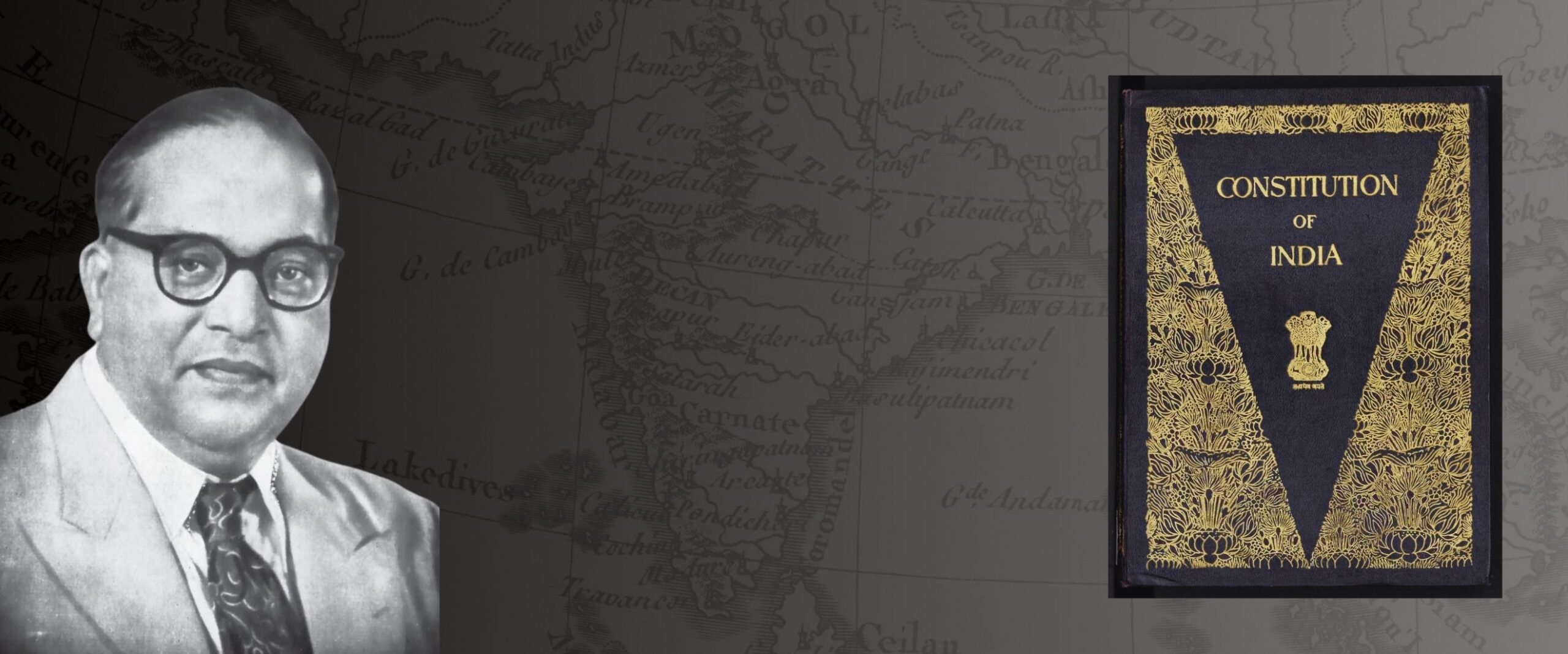Analysis
The doctor’s wise words on 25 November 1949
The day before the Constitution was adopted, Dr. B. R. Ambedkar spoke about the contradiction between political and social inequality

We missed writing to you last weekend because we were at the LAWASIA 2023 Conference, as the official media partner. We recorded Constitution Day messages from the many luminaries at the conference, including Justices S.K. Kaul and B.V. Nagarathna. Seeing that the Supreme Court itself celebrated the day three days past the date, we felt it’s not too late to put out our own Constitution Day-themed Desk Brief this weekend. After all, the date itself doesn’t matter as much as the values and the spirit it stands for.
That the Constitution of India was a radical act is proven every day. It’s been almost 74 years of the republic and caste atrocities are neither shocking nor front-page news. In a country where sex-selective abortions are still a thing in 2023, imagining a document where all humans are equal would have taken tremendous courage and hope in the late 1940s. As our everyday lives in this democratic republic go on, we may not realise the sheer effort and complexity of creating a Constitution to bring together India’s diverse peoples.
The document we gave unto ourselves and the words of its master crafter Dr. Ambedkar are very close to my heart. So, for Constitution Day, I wanted to present you with a brief excerpt of a speech he delivered in the Constituent Assembly on the eve of the document’s adoption. It was a momentous occasion—the writing was done, now the living would have to begin.
-Leena Gita Reghunath, Editor-in-Chief
We must begin by acknowledging the fact that there is complete absence of two things in Indian Society. One of these is equality. On the social plane, we have in India a society based on the principle of graded inequality which means elevation for some and degradation for others. On the economic plane, we have a society in which there are some who have immense wealth as against many who live in abject poverty. On the 26th of January 1950, we are going to enter into a life of contradictions. In politics we will have equality and in social and economic life we will have inequality. In politics we will be recognizing the principle of one man one vote and one vote one value. In our social and economic life, we shall, by reason of our social and economic structure, continue to deny the principle of one man one value. How long shall we continue to live this life of contradictions? How long shall we continue to deny equality in our social and economic life? If we continue to deny it for long, we will do so only by putting our political democracy in peril. We must remove this contradiction at the earliest possible moment or else those who suffer from inequality will blow up the structure of political democracy which this Assembly has so laboriously built up.
The second thing we are wanting in is recognition of the principle of fraternity. What does fraternity mean? Fraternity means a sense of common brotherhood of all Indians—if Indians being one people. It is the principle which gives unity and solidarity to social life. It is a difficult thing to achieve.…
I remember the days when politically-minded Indians resented the expression “the people of India.” They preferred the expression “the Indian nation.” I am of the opinion that in believing that we are a nation, we are cherishing a great delusion. How can people divided into several thousands of castes be a nation? The sooner we realize that we are not as yet a nation in the social and psychological sense of the world, the better for us. For then only we shall realize the necessity of becoming a nation and seriously think of ways and means of realizing the goal. The realization of this goal is going to be very difficult – far more difficult than it has been in the United States. The United States has no caste problem. In India there are castes. The castes are anti-national. In the first place because they bring about separation in social life…. They are anti national also because they generate jealousy and antipathy between caste and caste. But we must overcome all these difficulties if we wish to become a nation in reality. For fraternity can be a fact only when there is a nation. Without fraternity, equality and liberty will be no deeper than coats of paint.
These are my reflections about the tasks that lie ahead of us. They may not be very pleasant to some. But there can be no gainsaying that political power in this country has too long been the monopoly of a few and the many are not only beasts of burden, but also beasts of prey. This monopoly has not merely deprived them of their chance of betterment, it has sapped them of what may be called the significance of life. These down-trodden classes are tired of being governed. They are impatient to govern themselves. This urge for self-realization in the down-trodden classes must not be allowed to devolve into a class struggle or class war. It would lead to a division of the House. That would indeed be a day of disaster. For, as has been well said by Abraham Lincoln, a House divided against itself cannot stand very long. Therefore the sooner room is made for the realization of their aspiration, the better for the few, the better for the country, the better for the maintenance for its independence and the better for the continuance of its democratic structure. This can only be done by the establishment of equality and fraternity in all spheres of life. That is why I have laid so much stress on them.
The full speech is available here.